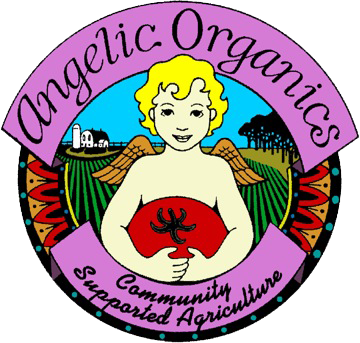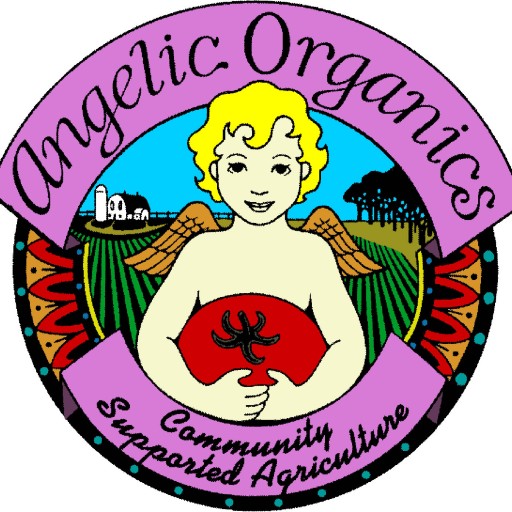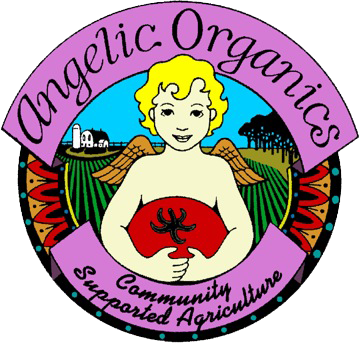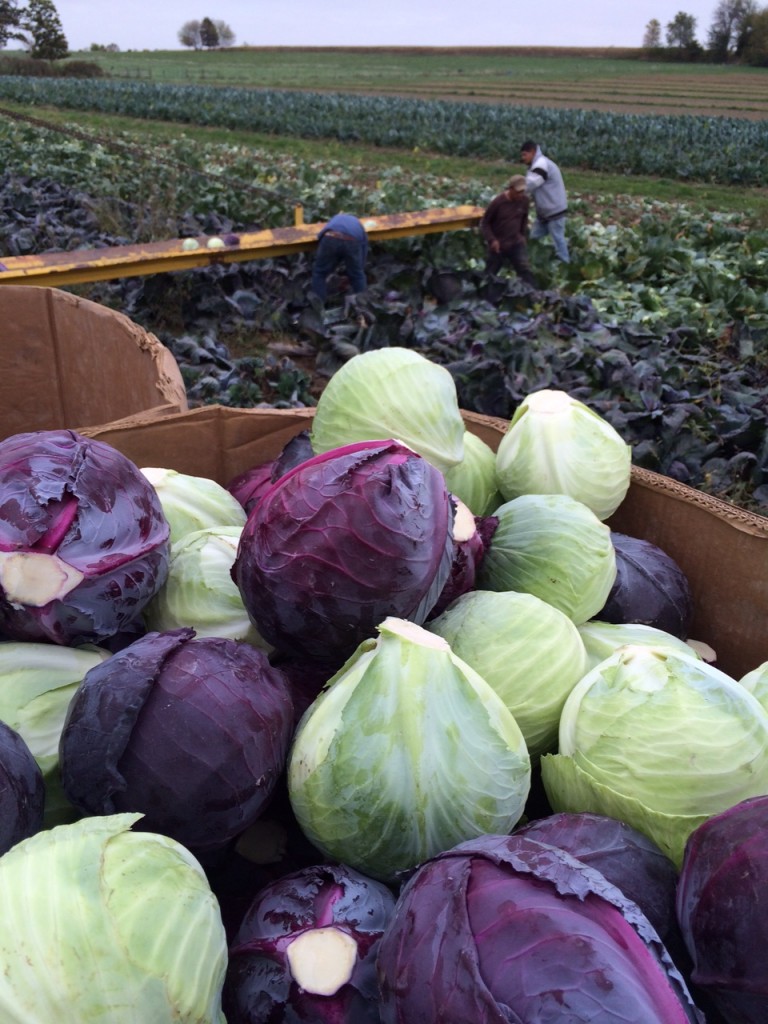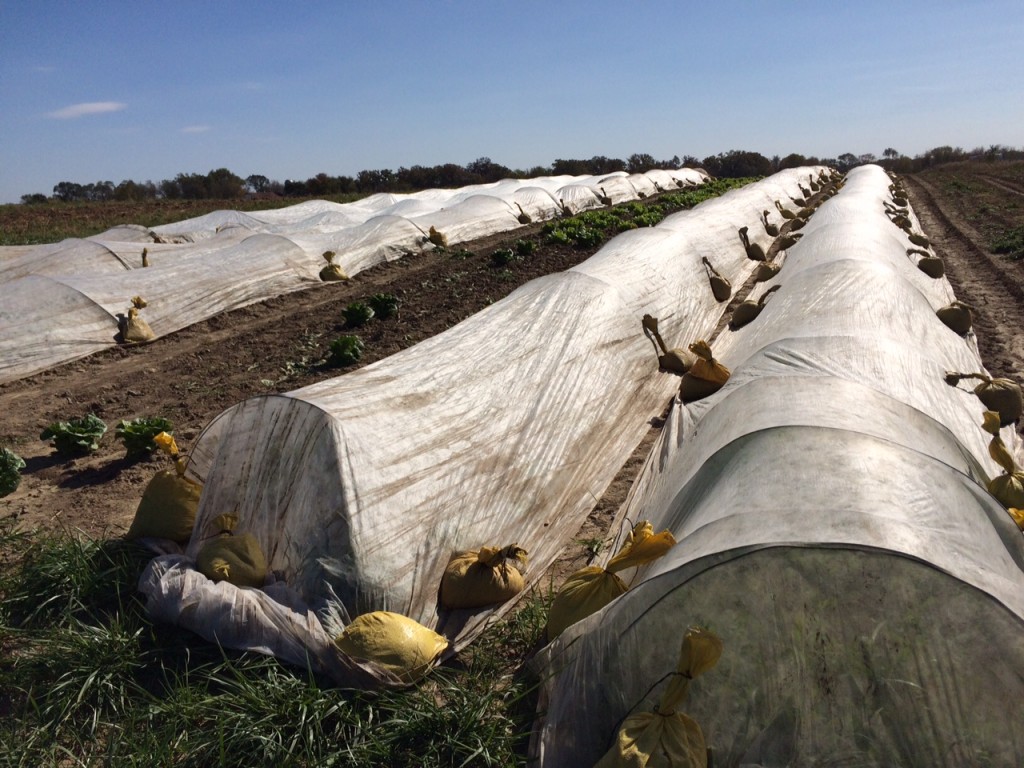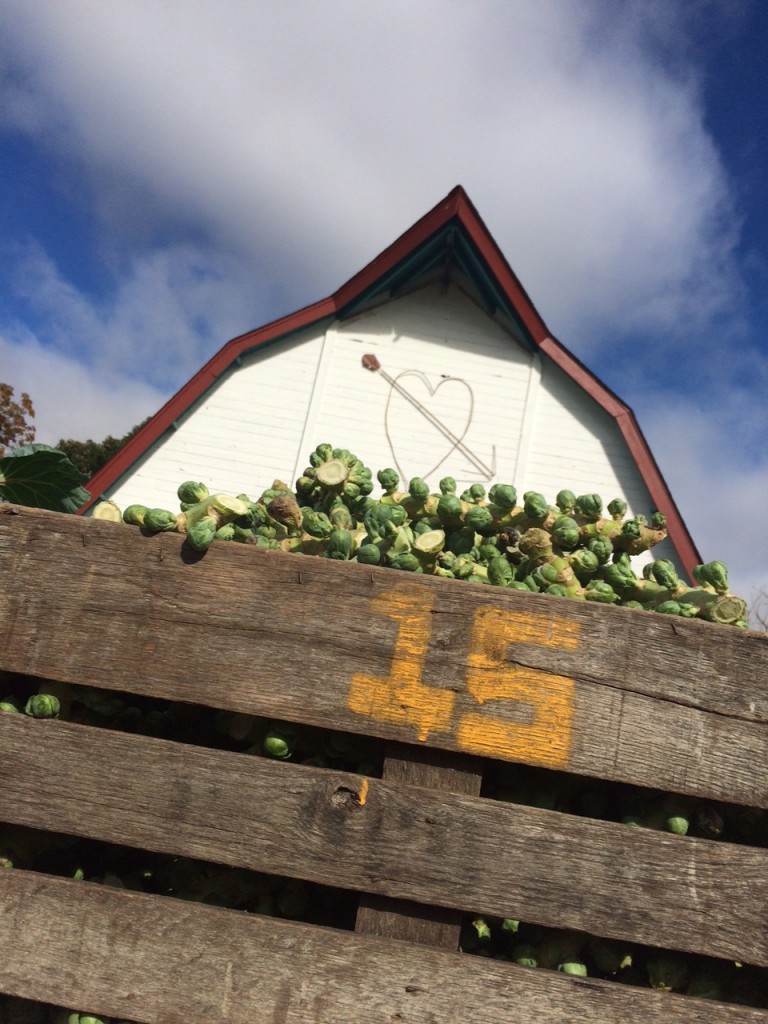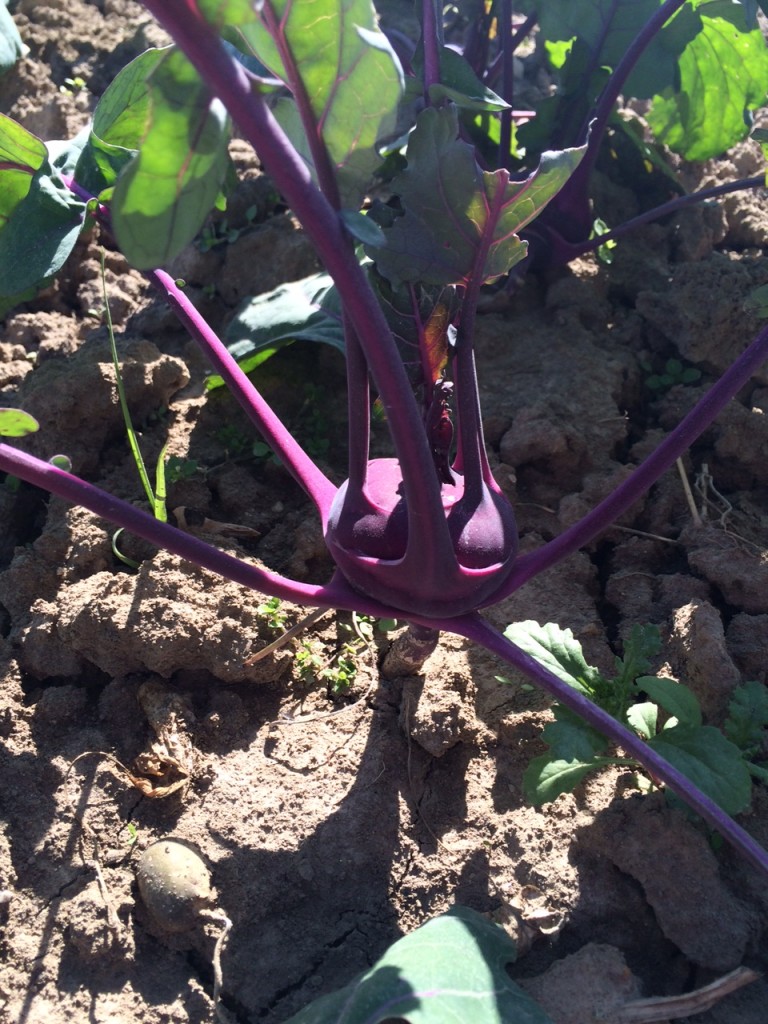Farmer John Writes about 2016
Welcome to our Twentieth Harvest Week, the Final Week of the Main Season
This Week, Week 20, May be Your Last Week
This is your final week unless you are signed up for an Extended Season Share. Check your record at http://angelicorganicsfarm.csasignup.com/login to confirm whether you are signed up for an Extended Season Share.
Please Thank Your Hosts
Your hosts provide a very special service to the CSA community. Please let them know that you appreciate them.
Thanks to the Crew
The crew does a lot of work to get your boxes to you full and on-time. A big thank you to our many hearty workers.
My Two Favorite Things about our CSA
What I love most about our CSA are: 1) growing things and 2) providing our shareholders with a direct experience of our farm. My mother loved farms. I love farms. I love that I can offer a direct, personal experience of our farm to you, through our box of vegetables, the newsletter, our field days, the U-Pick garden, and, of course, through the Angelic Organics Learning Center. I want the whole world to be excited about farms.
2016 Shares & Beyond—Sign up by Monday, Oct 26, for the Best Discount
There’s a 2016 & Multi-Year Signup Form front and center in your box this week. If you think you’ll be with us again in 2016, this is a good time to sign up, due to the discounts offered. You can still get a good discount on home delivery; as time passes, the home delivery discount will shrink further. For those of you who have already signed up for 2016 and perhaps beyond, thank you!
If you feel you will be staying with Angelic Organics beyond 2016, you might at this time like to sign up for a multi-year share, which is also offered in the sign-up form. Future years are substantially discounted, and offer a great way to secure nutritious, organic food long term. A long term CSA commitment is a healthy way to contribute to both your family and the farm.
Community Site Pickup Times in 2016
We will probably be expanding the 2016 pickup windows beyond their current timeframes. We’re not sure yet how that will look, but we want more shareholder-friendly time windows for picking up. Of course, the pickup windows have to also be friendly to our hosts and to our delivery people, so it takes quite a bit of thought and negotiation to optimize our pickup times. Stay tuned on this effort. We might be able to offer an exciting new feature, but I don’t want to write more about it now—best to wait until we find that we can actually roll it out.
Frost Last Week
We finally had a frost last week. We were prepared for it, having covered our frost sensitive lettuce. The baby greens seemed to enjoy the frost. They can hold up into the mid-20’s. The broccoli, cabbage, parsley, and Brussels sprouts rejoiced in the frost. You will notice the Brussels sprouts are extra sweet from now on. I suppose the reason our Brussels sprouts are so popular with our shareholders is that they usually go through a few cycles of sweetening frosts.
Let’s be Clubby
I mentioned this in last week’s newsletter: I don’t like marketing. Marketing is not why I decided to get the farm going again back in 1990. Once we got over some hurdles in the 90’s, we hardly marketed at all for many years. Now I have to market again, because there are so many options for getting organic vegetables today. If you like our CSA program, please let your friends know. And let them know that the only way they can have their Very Own Farm is to join a CSA.
More or Less
If I cut back on share sales, I would have to market less. I am considering this option for 2016.
What Else in 2016?
There are many directions that a CSA vegetable farm can go from one season to the next. I’ll focus on one of them here: what ends up in your box. As a shareholder, your primary experience of Angelic Organics is likely to be the box itself. What’s in the box? How is the quality? How is the quantity? How much of what I like is in the box? How much of what I don’t like is in the box? Do I get something too often, or not often enough?
It’s very important for you to know that the box shows up as the interface between what we plan and what happens (like much of the rest of life.) I script each week’s box the winter before. It is an interesting undertaking. One of the things I have to consider is what might happen to a crop that seldom happens, or what might happen that has never happened before? For instance, we had a tiny fall turnip crop this season. The two beds of turnips were seeded at the right time. One came up fine; one didn’t. When a bed does not germinate well, it might get re-seeded, but there has to be time for that re-seeded crop to mature. If it’s too late to re-seed it, something else will go in its place, or nothing might go in its place. It all depends. In the case of the fall turnips that didn’t come up, I ended up seeding pea shoots there. Peas shoots are not similar to turnips, but peas shoots would mature and re-seeded turnips probably wouldn’t.
The bed of turnips that came up well and looked good while it was growing was inundated with worms just before we harvested it. The turnips were not suitable for anything but the swap boxes. I have never had a bed of turnips come up poorly before. (I have had beds come up too thick, which creates its own brand of crop degradation. In a bed that is seeded too thick, the turnips won’t fill out properly.) I don’t remember ever having a bed of turnips get ruined by worms just before harvest. So this fall, things happened to the turnips that have never happened before. Every shareholder should have received a lovely bunch of turnips, but didn’t. However, late next summer, I won’t put in 5 times as many turnips as this year. I’ll seed the same number of turnip beds. We’ll probably have great turnips next year.
Swiss chard for bunching is another crop that didn’t do as expected this year. Every few years, it gets blighted and can’t be given, unless we mow it down. Then it usually re-grows and makes a nice comeback with lovely, tender new leaves. This year, it got blighted. We mowed it. The leaves grew back blighted. We mowed it again. The leaves grew back blighted. We ended up salvaging a small harvest of Swiss chard from a different field, but not having the bunching chard available like I had planned was a bit of a blow. Fortunately, the volume was compensated for due to an abundance of other crops, such as potatoes. Of course, chard doesn’t seem much like a potato. But then, we had bountiful crops of baby greens, so they compensated in a more direct way for the lack of bunching chard.
About baby greens, I think I mentioned this in a former column: near harvest time, baby greens will sometimes double in volume in a week. We might get five bins of arugula from a bed early in the week, and as much as ten bins at the end of the week from a neighboring bed seeded the same time as the bed that yielded five bins. Boggling, and challenging for scripting your box.
So, about planning out your box in the winter, even though I am an experienced grower, having raised vegetables now for 25 years, which results in fewer surprises, there are still a lot of surprises that come my way.
One of my rules is to overgrow by 10% of what is needed. This works out pretty well, since there can be that much yield slippage every week. And remember, I am an experienced grower. We’re not sloppy or casual with our growing methods here. We have everything in place to do the job right and on time, but even when we do the job right and on time, we still get surprises.
What is Needed?
When I write above that I overgrow by 10% of what is needed, what is needed is its own mystery, since it’s hard to really know how many shareholders we will have when it comes time to map out the fields and order seed in January. This is another reason why it helps when shareholders sign up early, because then they are a known element that helps us balance out the guesswork for growing for how many shares we will actually sell. Welcome to Community Supported Agriculture!
Let us Know
Let Shelly know anything you’d like to share about this week’s box email hidden; JavaScript is required. Please note the week and day of delivery, your site, when you picked up your box, and any comments about your box.
More from Shareholders
Visit us often at www.facebook.com/angelicorganics , where we post exciting farm developments regularly, and shareholders post recipes, tips, and photos.
Please Flatten Your Boxes Properly and Return Them, Especially if you have been Stockpiling Them
The farm re-uses the vegetable boxes. Flaps are easily torn when the boxes are dismantled improperly, and then the box bottom might later burst open with fresh, organic local produce heading towards the floor. Please flatten your box carefully. Return your empty, flattened vegetable box to your delivery site. If you receive home delivery, place your box(es) in the location where your box is delivered. If you receive fruit, you’ll need to re-cycle your fruit box on your own, as the farm does not re-use your fruit boxes.
Saturday’s Box Contents
Please Note: this summary is written before you receive your box—be aware that some guesswork is involved. What we think we’ll put in your box might not actually end up in your box. As always, be sure to thoroughly wash all of your vegetables, and remember to sort through your baby greens to eliminate any discolored leaves or weeds.
Salad Greens – lettuce, arugula
Cooking Greens – kale
Brassicas – cabbage, Brussels sprouts, broccoli or cauliflower
Root Crops – beets, potatoes
Herbs – thyme
Thank you again for being with us this year,
Farmer John and the Crew
